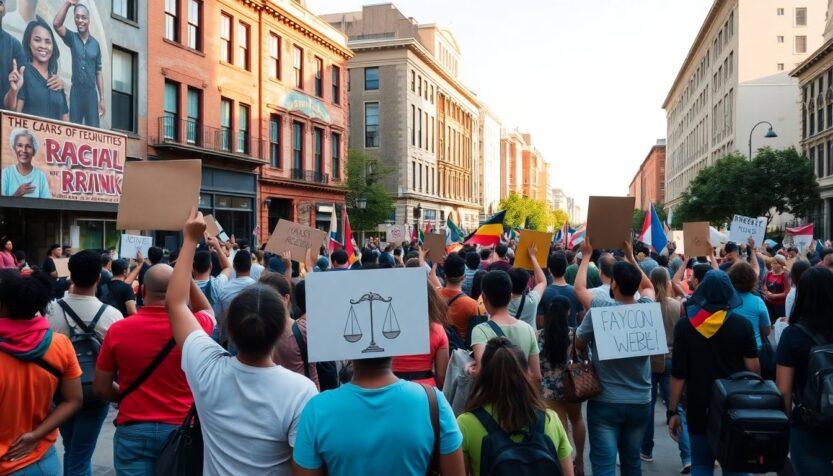Following the events surrounding the death of George Floyd in 2020, the United States witnessed a significant reckoning regarding racism. This awareness, while long overdue, has left many in shock as they confront the reality of systemic racism that has persisted in plain sight. The question resonates: How could this happen right under our noses? The truth is that racism has always existed and continues to be a pressing issue that must be addressed.
Since early 2021, feelings of anxiety and fear have intensified. As a Black woman, I grapple with emotional burdens reminiscent of the summer of 2020. The societal stresses affect everyone, but for marginalized communities—Black, brown, LGBTQ+, and immigrants—these issues run deeper than political discussions. They raise fundamental questions about safety and humanity.
The daily challenges faced by marginalized communities
The rise of hate speech and harmful rhetoric has created a hostile environment. As a Black woman, I navigate a reality filled with negativity. Each day brings messages that undermine my worth and humanity. The horror lies not only in individual words but also in the collective silence of those who agree or remain passive. My experience is exacerbated by a societal structure that legitimizes these sentiments nationally.
The practical implications of systemic racism
Beyond emotional tolls, the practical ramifications of racism are stark. Black individuals, particularly women, face unprecedented job losses due to the rollback of diversity, equity, and inclusion (DEI) initiatives. Reports of racial violence are rising, prompting fears: Will my family remain intact? Am I safe from physical harm when I leave my home? These concerns are not abstract; they are daily realities for many.
The facade of normalcy and its hidden burdens
It is vital to recognize that many Black and brown friends, as well as LGBTQ+ associates, may appear to thrive professionally. You might see a colleague delivering an impressive presentation or a Latina journalist passionately sharing her work. Yet, beneath that surface, many carry hearts weighed down by fear and anxiety. I embody this truth as I juggle tasks like editing manuscripts or grocery shopping, all while my humanity is consistently under threat.
Understanding the emotional disconnect
For those who do not experience this level of distress, grasping the profound impact of living under such conditions may be difficult. While many express compassion and outrage, they remain insulated from the realities faced by marginalized groups. This disconnect can lead to insensitivity that is challenging for individuals like me to navigate. The belief that we have moved past issues of race is not a reality for those confronting our identity daily. Although the sentiments driving systemic racism may have evolved, they are far from extinguished.
My father, who witnessed significant historical changes in race relations, often lamented the current state of affairs during his final years. He experienced the struggles for civil rights and believed that progress was now slipping away. The pain of losing that progress can be more profound than enduring stagnation, especially for those who hoped during the brief moment of collective awareness in 2020.
Hopes and challenges in the current climate
The optimism felt in 2020 by many in the Black and brown communities has given way to familiar pessimism. The fleeting moments of solidarity and calls for change have faded as the national dialogue shifted away from these critical issues. The silence from those who once rallied for justice is deafening, leaving many feeling abandoned.
Reflecting on this, here are five essential messages I wish to share with my white friends:
- Acknowledge the fear:Recognize that Black and brown individuals are grappling with heightened levels of fear and anxiety due to the prevailing social climate.
- Check in on your friends:Reach out to your POC friends and colleagues with empathy, allowing them space to express their emotions and concerns.
- Maintain connections:Continue relationships with diverse individuals, as these conversations are vital even when media focus wanes.
- Use your voice:Remember your platform to advocate for change and take action against hate speech and injustice.
- Understand the significance of race:Recognize that race still matters significantly in our society and commit to fighting for the rights of all.
In these challenging times, engaging in conversations about race and taking meaningful steps toward change is crucial for all.






